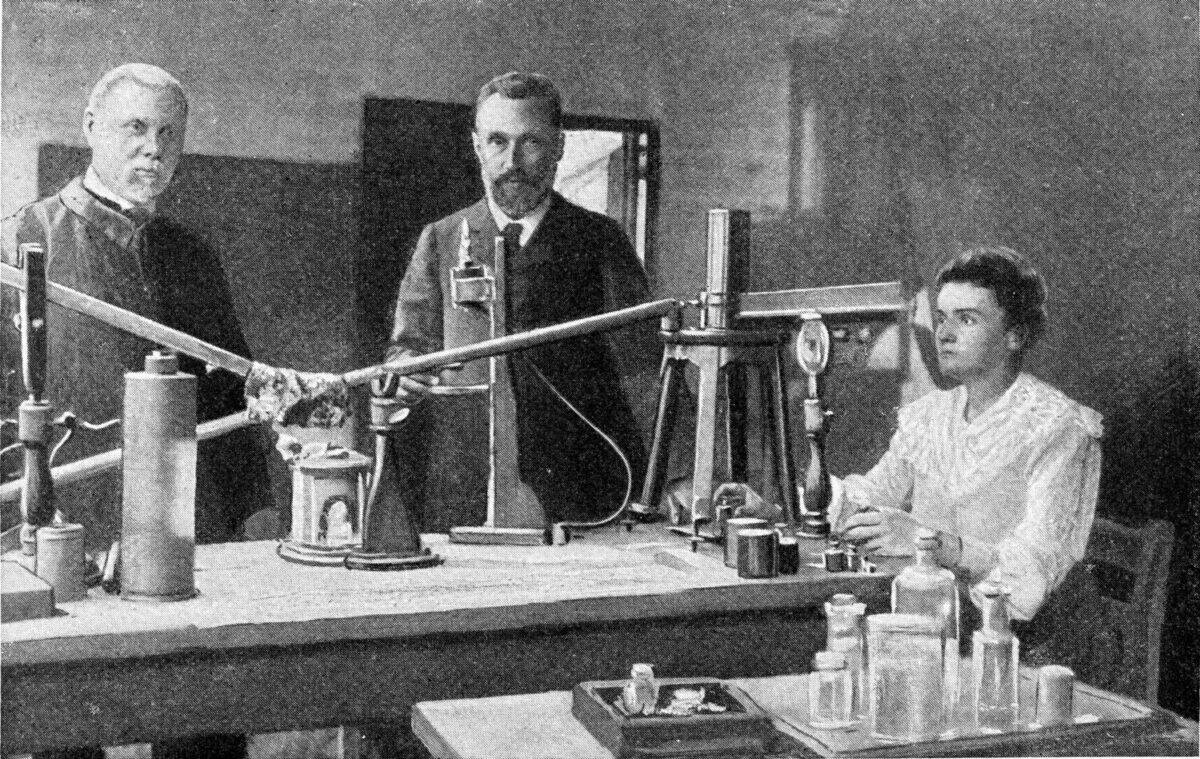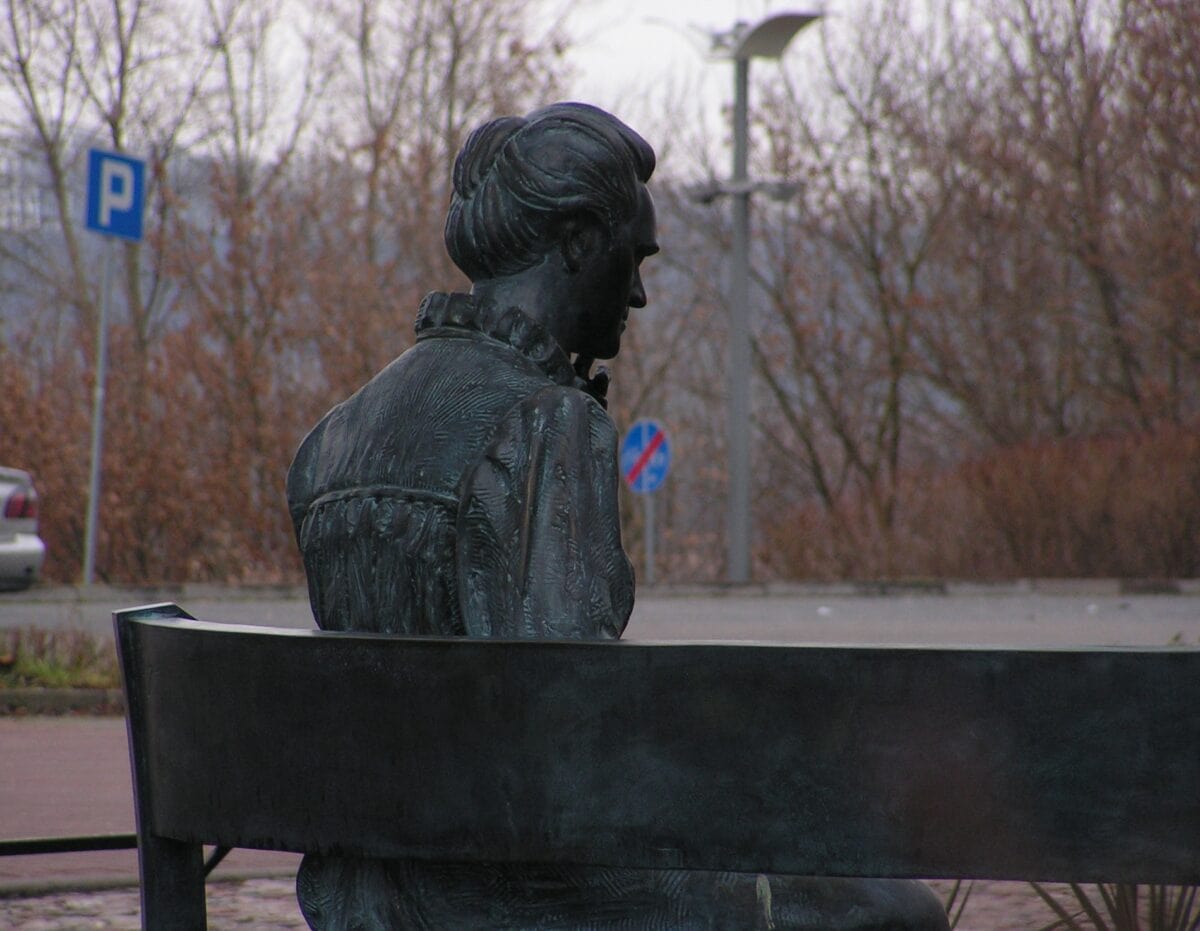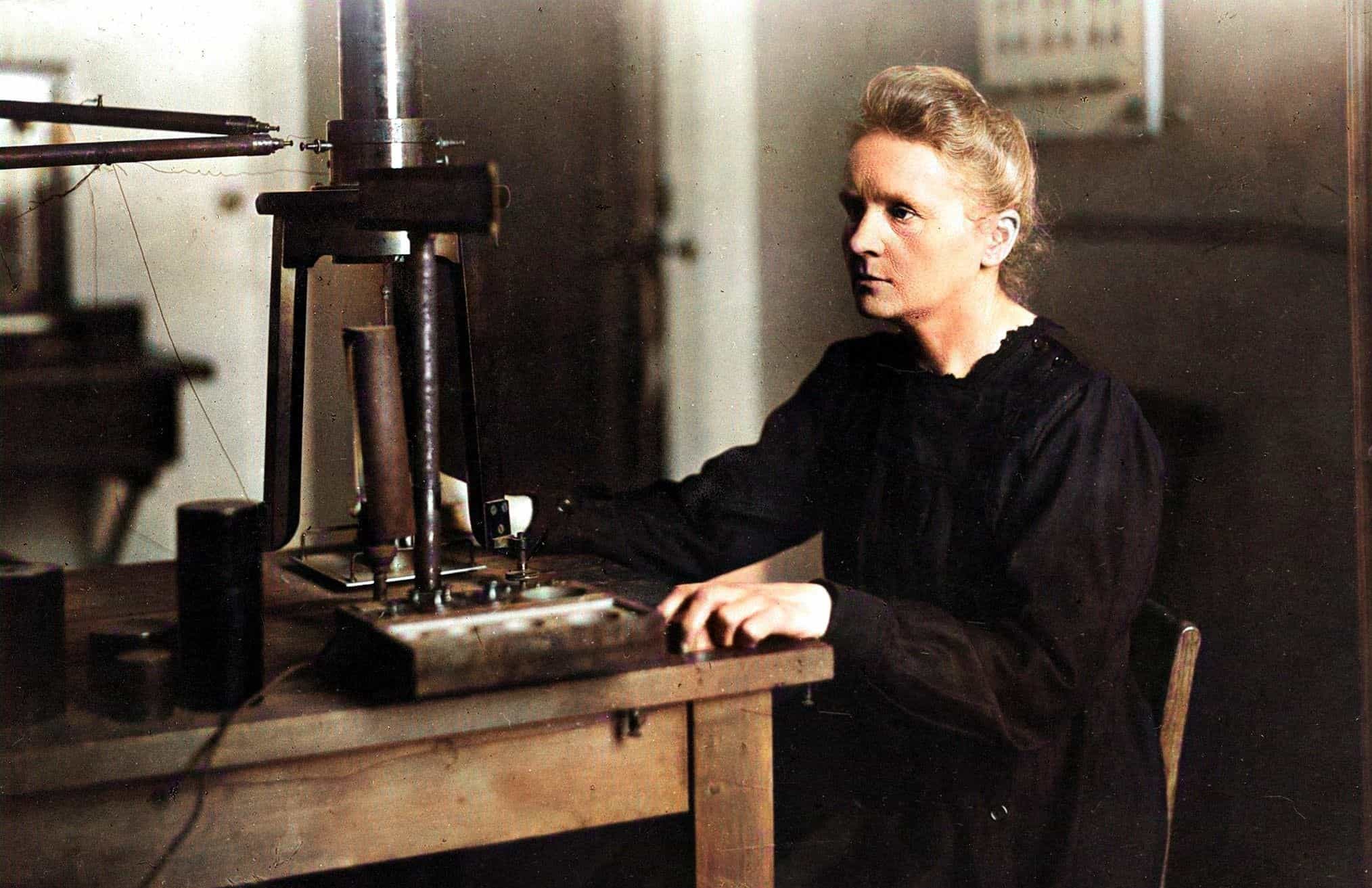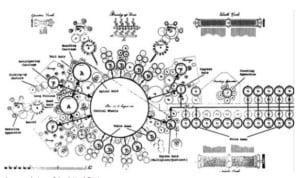Marie Curie, an emblematic figure in the world of science, has left an indelible mark on the fabric of physics and chemistry. Her unparalleled accomplishments, earning her not one, but two, Nobel prizes have forever sealed her place in the archives of scientific brilliance.
So, just how intelligent was Marie Curie? Was she the pinnacle of intellectual prowess? Join us as we unravel the enigma of Curie’s genius and monumental achievements.
Marie Curie’s IQ
Marie Curie stands tall as one of history’s most brilliant individuals. Given the era she lived, pinning an exact IQ is challenging. Standardized IQ tests were relatively new in Curie’s time, as they were first introduced in 1904. However, gauging from her groundbreaking discoveries and deep comprehension of complex subjects, experts estimate Marie Curie’s IQ to be between 180 to 200.
Her pursuit of knowledge, evidenced by her journey to Paris and her relentless academic endeavors at Sorbonne University, speaks volumes of her genius. While there is no confirmed data regarding Marie Curie’s IQ, her remarkable feats in science hint at an intellect that could rival today’s geniuses.
Considering her transformative work in radioactivity and dual Nobel triumphs, one might wonder: Was Marie Curie the most intelligent individual of her time, or perhaps even in history? Drawing comparisons across centuries and fields is challenging. However, her trailblazing legacy in reshaping science is undeniable.

©Morphart Creation/Shutterstock.com
What Set Marie Curie Apart?
Marie Curie’s name resonates profoundly within the hallowed halls of scientific history. While her discoveries of radium and polonium are well-known, it’s the amalgamation of her unique qualities and experiences that truly set her apart. So, what propelled her to a pedestal that few have attained?
Unyielding Quest for Understanding
Marie Curie’s passion for science knew no bounds. Born in Warsaw, Poland, she grew up in a family that valued education. Despite facing financial challenges, she moved to Paris to further her education.
At the Sorbonne, she not only pursued but excelled, earning degrees in both physics and mathematics. In fact, in 1903, she became the first woman to win a Nobel Prize in Physics. She earned it for her studies on radiation, a testament to her unwavering dedication.
Resilience in the Face of Adversity
The turn of the 20th century was a time when women were seldom seen or heard in the scientific community. But Curie was an exception. Battling rampant gender biases, she carved a niche for herself, proving that passion and talent have no gender. In 1911, her resilience was once again evident when she won a second Nobel Prize, this time in Chemistry. This subsequently made her the only person to have won Nobel Prizes in two different scientific fields.
Innate Curiosity and Zeal for Innovation
Marie Curie’s work was often groundbreaking because she was driven by a genuine desire to understand the world around her. Her pioneering research in radioactivity — a term she coined — laid the foundation for numerous medical and industrial applications that we see today.
Her innovative spirit can be best exemplified by the establishment of mobile radiography units during World War I. In fact, they are estimated to have treated over a million wounded soldiers.
Synergy in Collaboration
Marie’s partnership with Pierre Curie was not just marital but a meeting of two brilliant minds. They shared a lab, research, and even a Nobel Prize. Their collaborative efforts provided a robust foundation for the study of radioactivity.
Pierre’s untimely death in 1906 was a significant blow. However, Marie’s determination saw her taking over his teaching position at the Sorbonne. This led her to become the institution’s first female professor.

Was Marie Curie’s Nobel Success a Mere Coincidence?
To achieve a Nobel Prize is monumental; to win it twice, across two distinct scientific fields, borders on the miraculous. But in Marie Curie’s case, was it a result of sheer serendipity or a testament to her unparalleled scientific prowess?
Landmarks in Marie Curie’s Scientific Odyssey
- Trailblazing Work on Radioactivity: Before Curie, the phenomenon of radioactivity was a complete enigma. She didn’t just venture into this unknown territory; she pioneered its study. Curie laid down the foundational understanding of a field that would grow exponentially in the subsequent years.
- Discoveries of Radium and Polonium: Curie’s findings not only expanded the frontiers of atomic physics but also spearheaded innovations in medicine. Thanks to her research, radium became a linchpin in cancer treatments, transforming how we approached the deadly disease.
- War Efforts: Marie Curie wasn’t one to remain ensconced in her laboratory, especially in the face of global crises. During the throes of World War I, she realized the potential of her research in aiding the wounded. The inception of mobile radiography units under her guidance proved revolutionary. They provided timely medical interventions and saved countless lives on the battlefield.
- Collaborative Genius: While Marie’s genius is undeniable, she knew the value of collaboration. Together with her husband, Pierre Curie, they formed a scientific duo par excellence. Their combined endeavors led to a deeper understanding of radioactivity, cementing their place as one of the most influential pairs in scientific history.
- Enduring Legacy: Marie Curie’s work has withstood the test of time. Today, over a century later, her discoveries continue to influence fields as diverse as medicine, energy, and fundamental physics. Her legacy isn’t just in her findings, but in the generations of scientists she inspired.
Reviewing these milestones in Curie’s life, one thing becomes crystal clear: her dual Nobel triumphs weren’t products of fate or fortune. They were the undeniable outcomes of a lifetime dedicated to pushing the boundaries of knowledge and applying it for the greater good.
Influence on Female Pioneers in Science
Marie Curie stands tall among the giants of scientific history. She served as a lighthouse for women navigating the stormy seas of a male-dominated scientific age.
In an epoch when research chambers and academic halls echoed predominantly male voices, Curie’s ascendancy was both groundbreaking and unexpected.
For many women in the late 1800s and early 1900s, the corridors of science were often barricaded. Yet, Curie, armed with unyielding zeal and transformative findings, carved her path through these obstructions. Earning not one, but two Nobel Prizes, she declared emphatically that women had every right to sculpt and command the scientific narrative.
The expanding roster of women embracing STEM today owes a nod of gratitude to trailblazers like Marie Curie. She showcased that scientific exploration is a realm unconstrained by gender.
Trials and Triumphs
Like any celestial body illuminating the night, Marie Curie too had her eclipses. Amid her stellar achievements, she navigated a maze of obstacles both from within the scientific precincts and the larger society.
One formidable challenge was the wave of skepticism she encountered. Her trailblazing efforts in radioactivity, a discipline she virtually inaugurated, were often greeted with a mix of wonder and wariness.
Amplifying these hurdles was her gender. Curie’s monumental successes were sometimes diminished or misattributed to her male contemporaries, including her partner in both life and science, Pierre Curie.
Beyond the academic walls, Curie’s private life wasn’t spared from the public’s probing gaze, especially her association with scientist Paul Langevin following Pierre’s tragic demise. Critics pounced on this association, attempting to tarnish her reputation and overshadow her profound scientific milestones.
However, against this backdrop of challenges and conjectures, Curie’s determination remained steadfast. She plunged deeper into her work with an undeterred spirit, allowing her pioneering contributions to stand as an irrefutable testament to her integrity and intellect.
Final Thoughts
Marie Curie’s monumental imprint on the scientific panorama extends beyond her unparalleled intellectual might; it speaks to her relentless determination, formidable resilience, and voracious thirst for discovery.
Her groundbreaking endeavors, ranging from her seminal research on radioactivity to the momentous unearthing of radium and polonium, have transformed not only our scientific paradigms but have also found pivotal applications, notably in the realm of medicine and wartime expeditions.
While positioning her in the pantheon of scientific greats might elicit varying opinions, one assertion remains uncontestable: Marie Curie illuminated her era. Her relentless zeal, fervor, and unwavering commitment to the pursuit of enlightenment firmly etch her name among the scientific titans.
The image featured at the top of this post is ©Public domain / CC BY-SA 4.0.







